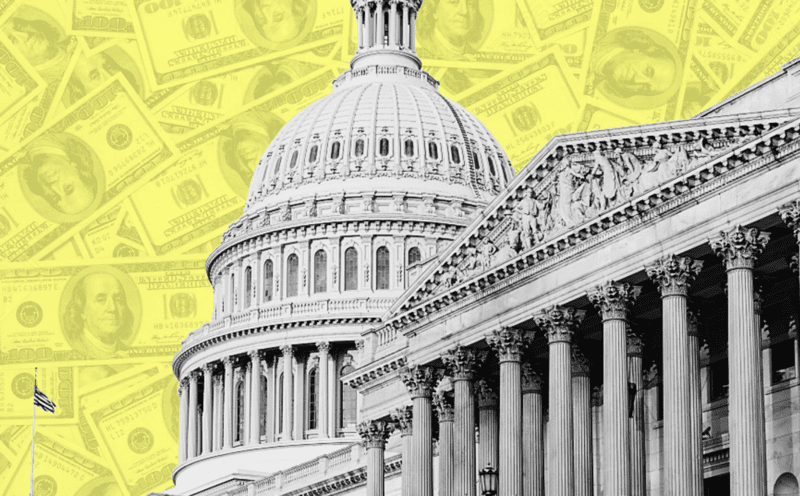The House of Representatives passed a resolution condemning “all forms of anti-Asian sentiment as related to COVID-19” on Thursday, marking the first time the Democratic-led legislative chamber has addressed anti-Asian discrimination during the coronavirus pandemic.
While the measure, spearheaded by Rep. Grace Meng (D-New York), is not binding law, resolutions are used to express the collective “sentiment” of the House.
The resolution urges federal law enforcement officials to improve data collection and investigation of anti-Asian hate crimes, and “calls on all public officials to condemn and denounce any and all anti-Asian sentiment in any form.” It also notes that anti-Asian rhetoric related to COVID-19, such as President Donald Trump’s use of “kung flu” and “Chinese virus,” have “perpetuated anti-Asian stigma.”
“We’re glad that the House is taking a very strong and public stance against the discrimination and the violence that is happening during this public health crisis,” Meng told USA Today congressional reporter Nicholas Wu ahead of Thursday’s vote.
The resolution faced significant opposition from Republican lawmakers, with House GOP Whip Steve Scalise (R-Louisiana) tweeting Tuesday that Democrats were “wasting time on a useless resolution.” Only 14 Republicans crossed party lines to support the measure, while all 164 votes against it came from GOP members.
There are no Republican Asian American members in the 116th Congress.
Asian American leaders applauded the House shortly after the resolution passed. “Today, the U.S. House of Representatives has sent a strong message that despite the overwhelming challenges our country faces today, we are stronger together,” the National Council of Asian Pacific Americans said in a statement. “[S]o long as elected officials insist on racializing the virus to deflect blame or dodge accountability, we’ll be here to remind them that Asian Americans will not be collateral or scapegoats for their failed leadership.”
Surging hate crimes
Anti-Asian bias has been on the rise since the start of the pandemic. More than 2,834 Asian Americans have experienced incidents of bias, according to the National Council of Asian Pacific Americans. Some of the more severe hate crimes saw assailants stab a Burmese American family—including two young children ages 2 and 6—set an 89-year-old Chinese grandmother on fire, and attack a pregnant woman in front of her 12-year-old daughter.
An April survey conducted by Ipsos for the Center for Public Integrity found that more than 30% of Americans have witnessed someone blaming Asian people for the coronavirus pandemic; 60% of Asian Americans “told Ipsos they’ve seen the same behavior.” Human Rights Watch has urged governments to take action to prevent anti-Asian attacks and protect Asians.
Trump’s rhetoric has done the opposite, some say. A piece published on the Human Rights Watch website in April suggested a link between his racist epithets and a surge in anti-Asian hate incidents. “Those are terms meant to be humiliating,” Gene Wu, a Chinese American Democratic member of the Texas House of Representatives, told Voice of America in June. Despite his words, Trump has insisted that he supports Asian Americans and that the coronavirus is not their fault.
In March, 180 civil rights organizations urged the White House to establish a task force “to investigate and protect the civil rights of AAPIs.” More than a dozen Democratic senators have sent letters to the U.S. Department of Justice and the Centers for Disease Control and Prevention demanding action.
The U.S. Commission on Civil Rights, the federal agency charged with advising the president and Congress on civil rights enforcement, agreed to the senators’ demands to issue guidance to federal agencies on preventing and addressing anti-Asian racism and xenophobia in May.
Vice presidential candidate Kamala Harris has condemned the hate crimes and denounced Trump’s use of racist and xenophobic language to “sow hate and division among us.” The Black and Asian American senator is partnering with nonprofits in a campaign, known as Stand Up for AAPI Youth, against COVID-related youth bullying.
The history of anti-Asian racism
This is not the first time an infectious disease has been linked to Asian Americans, according to a study published in the American of Criminal Justice in June. “Because Asian Americans have historically been viewed as perpetually foreign no matter how long they have lived in the United States, we posit that it has been relatively easy for people to treat Chinese or Asian Americans as the physical embodiment of foreignness and disease,” the researchers write.
Anti-Asian racism and xenophobia have fueled policy, too, including the notable Chinese Exclusion Act of 1882, housing segregation, and anti-miscegenation laws.
Editor’s Note: This story was updated with a statement from Asian American leaders at 9:15 p.m.









